Reflections on working with the right-wing Christian power structure and why I resigned from the board of WHRC USA.
A Year of Fighting the Democrats on “Gender Identity”
For feminists opposing the assault on the rights and safety of women and girls through gender identity policy and legislation, 2021 has been one long hard slog. When the new legislative session began in January, the Democratic congress, as President Joe Biden had promised, immediately set about trying to pass the Equality Act. The legislation is intended to build on the 1964 Civil Rights Act by extending civil rights protections to lesbians, gays, and those claiming transgender identity. The problem with the bill for women and girls is that it does not treat “sex,” “sexual orientation,” and “gender identity” as distinct categories. Instead, the bill subsumes all three into the category “sex.” What this means is that males claiming female identity would be treated as if they are actually the opposite sex; i.e. allowed access to private female spaces such as locker rooms and restrooms, allowed to compete in female sports, and to be housed with women in prisons and shelters.
Just as feminists geared up to launch lobbying campaigns against the bill, President Biden issued Executive Order 13988 to “combat discrimination based on gender identity and sexual orientation.” The order was widely viewed as an effort to accomplish through the executive branch what was unlikely to pass in the Senate. Indeed, though a hearing on the Equality Act was held by the Senate Judiciary committee, no vote was taken. The EO required all federal agencies to review their policies, regulations, and guidances within 100 days, (commencing 1/20/2021), to determine what revisions should be made to prevent sex discrimination. As with the Equality Act, the EO collapses the categories “sex,” “sexual orientation,” and “gender identity,” thereby eliminating biological sex as a distinct protected class in law and policy.
Feminists in organized groups, such as Women’s Liberation Front (WoLF), Feminists in Struggle (FIST), and the US chapter of the Women’s Human Rights Campaign (WHRC USA)1, as well individual activists, scrambled to lobby legislators to revise the Equality Act, write heads of federal agencies, and testify in support of, or opposition to, a slew of gender identity bills introduced in state legislatures.
To almost no one’s surprise, but everyone’s dismay, their efforts largely fell on deaf ears. Democrats responded to their constituents with form letters that failed to address specific concerns, and instead offered generalities about protecting the rights of all Americans. By the summer of 2021, right-wing strategists had identified three hot-button issues that could be used to target school boards: Covid restrictions, critical race theory curriculum, and gender identity policy.
The conflict between school boards and parents began with frustrations over masking requirements to prevent covid-19 transmission for children returning to school, with some parents vociferously objecting to masking their children. As meetings between parents and school boards became contentious, the Proud Boys, an all-male, anti-feminist, right-wing group that advocates violence to achieve political aims, and whose initiation oath includes “I'm a proud Western chauvinist,” inserted themselves into the situation. They began showing up at school board meetings, disrupting the proceedings and threatening citizens.
In Florida, physical fights broke out after the board passed a mask mandate. In Arizona, three men brandishing zip ties confronted a principal after she ruled a student had to be quarantined. In Pennsylvania, a politician threatened to show up at a school board meeting “with 20 strong men” and order board members to “leave or they can be removed.”
Eventually, the National School Boards Association (NSBA) sent a letter asking the Biden administration to intervene:
“America’s public schools and its education leaders are under an immediate threat,” the letter states. It asks for “immediate assistance” due to “attacks against school board members and educators for approving policies for masks to protect the health and safety of students and school employees.”
Critical race theory also emerged as a concern for parents. As with masking, what may have begun as grassroots concerns among parents about what they saw as a divisive curriculum was quickly seized upon by opportunistic parties. Right-wing operatives sought to capitalize on the issue to “harness a national movement that could unseat Democrats.” Politico reports:
Google searches for “critical race theory” skyrocketed on March 18, for example, the same day that Republican Gov. Ron DeSantis proposed banning it from Florida’s school curriculum. Fox News mentioned critical race theory nearly 1,300 times over a three-and-a-half-month span, according to an analysis done by the liberal watchdog Media Matters for America. Last week, Texas became the fifth state that passed a law taking aim at critical race theory or similar topics, and legislation has been proposed in more than a dozen other states.
The legal theory and analysis, developed by scholars Derrick Bell, Kimberlé Crenshaw, Richard Delgado, and others in the 1970s, is not taught in our nation’s elementary and secondary schools. Some ideas derived from CRT, however, do inform school curriculum on race relations in the United States. For example, CRT recognizes that the US was founded on racism, and analyzes the ways in which racism is built into our institutions, thereby reproducing inequality.
These ideas are not exclusive to CRT, nor are they novel to anyone modestly familiar with US history. For example, it is generally well-known that the United States was founded on land stolen from indigenous people, and that slavery was instituted during colonial times, continuing through a bitter Civil War. Statistical documentation of systemic inequality, historic and contemporary, is abundant in academic research literature.
Finally, parents are also concerned about “gender identity” policies that encourage and support “transition” without parental notification, and that allow boys who identify as girls to compete in girls’ sport and use girls’ restrooms and locker rooms.
Parents began forming their own groups and actions around these issues, but operatives from a network of right-wing groups were quick to spot an opportunity and are “quietly lending firepower” by “offering legal help, research, organizing tools and media training.” In some locales, covid restrictions were the driving factor in fractious relations between parents and school boards. In others, CRT was the primary bugaboo. In Loudoun county, Virginia, “gender identity” took center stage when it came to light that a 15-year-old girl had been raped in the girls’ restroom by a boy wearing a skirt, that the school board covered it up, then transferred the boy to another school, where he sexually assaulted another girl in a classroom.
It is unclear whether the boy identifies as transgender. The girl he was convicted of raping says he is “nonbinary” or “gender fluid.” His mother says he is not trans, but just “trying to find himself.” Supporters of gender identity policies insist he is not trans, and point out that the Loudoun county policy allowing trans-identifying students to use the restroom of their choice was not enacted until after the rape occurred.
It doesn’t matter whether the boy identifies as a “trans girl,” if indeed he is “nonbinary.” That identity is also included under the trans “umbrella,” according to trans activists. And although the rape occurred prior to official policy enactment, many school officials are wary of making inquiries that could be misconstrued. The boy’s mother says the principal “tip toe[ed]” around the question of her son’s gender identity until she told him to just ask. Whipsawed by first the 2016 Obama administration letter directing them to allow transgender students to use the restroom of their choosing, having it rescinded by the Trump administration, and then again advised to adopt such policies by the Biden EO, it’s understandable that many school administrators are unsure where they stand legally.
Perhaps more importantly, the incident confirms the worst fears of those opposed to males claiming female identity entering private female spaces: If any male can assert that he is female, even if not every day, as “nonbinary” persons do; access private female spaces; and to question him would be “transphobic,” a huge opportunity has been created for predatory males. This particular boy has a history of sexual harassment, having sent nude photos of himself to a female classmate when he was in the 5th grade.
The volatile situation in Loudoun county reached a climax when the father of the girl who had been raped angrily confronted the school board, got into a heated exchange with another parent, and was dragged out of the meeting by police. For outraged parents, the father’s treatment was yet another indication of the authoritarianism of the Democrats and their insensitivity to concerns of women and girls about gender identity policies.
Democrats, meanwhile, focused on CRT and remained obtuse about gender identity issues. With callous indifference to conditions on the ground in Virginia, former President Obama, stumping for the Democratic candidate for Virginia governor, Terry McAuliffe, told a crowd, “We don’t have time to be wasting on these phony trumped-up culture wars, this fake outrage that right-wing media peddles to juice their ratings.” But McAuliffe himself sealed his fate when he announced in a debate, “I don’t think parents should be telling schools what they should teach.”
Although McAuliffe won Loudoun county, he did so by a narrower margin than President Biden did in 2020 - and lost his bid for governor of Virginia. Around the country Democrats took a shellacking, and education issues emerged as primary concerns for voters. Predictions are that the midterm elections next year will be equally grim for the Democrats. The new governor of Virginia, Glenn Youngkin, has vowed to ban CRT.
Following the Democratic defeat in Virginia, popular podcaster and television writer Graham Lineham invited Loudoun county activist Natassia Grover, and president of the US chapter of WHRC USA, Kara Dansky, to discuss what went down in Virginia. Dansky highlighted the cooperation between radical feminists and right-wing activists. She described bringing a small group of feminist activists to Loudoun to join a parents’ protest, and Grover generously allowing them space in her “Republican house” to make their signs. She quoted her friend Lierre Keith, founder and current board president2 of WoLF, on how the battle against gender identity policy will be won:
“‘It’s not going to be the Left. It’s not going to be the Right. It’s going to be women working together.’ And I've come to think that’s really true.”
Meanwhile, Wall Street Journal reporter, Abigail Shrier, author of Irreversible Damage, an investigation into the recent spike in the numbers of adolescent girls identifying as transgender, interviewed likely 2024 GOP presidential candidate, Senator Tom Cotton. She asked him, “Could the Republican Party ever become the party of women?” He replied:
[I]f you look at the exit polls from Virginia, it suggests that we already have. It’s very curious to see that so many self-styled feminists in politics and the media have taken steps that are objectively harmful to women.
By “feminists,” presumably he means mainstream organizations that support gender identity policy, such as the National Organization for Women (NOW). But what does he think of the feminists in WoLF and WHRC USA, who have been working diligently all year with right-wing women to oppose gender identity law and policy? Are these feminists as invisible to him as they are to the Democrats and the mainstream media? Or does he see us as already subsumed by the Christian right-wing power structure?
WoLF and WHRC USA Working with the Right
Women’s Liberation Front
Founded in 2013, Women’s Liberation Front (WoLF) has been working with right-wing groups since at least 2016. At that time, they accepted a $15,000 donation from the Alliance Defending Freedom (ADF) to pay off a legal expense. ADF is a Christian legal nonprofit with net assets in excess of $46 million (2020). ADF focuses “legal work in five core areas: religious freedom, freedom of speech, sanctity of life, marriage and family, and parental rights.”
ADF successfully won a legal victory for a craft chain store owned by a conservative Christian family in Burwell v. Hobby Lobby (2014). Hobby Lobby objected to the Affordable Care Act mandate that required employers to include birth control in health insurance plans for employees. (Conversely, Hobby Lobby covers Viagra in its health care plan.) A current ADF lawsuit, for which WoLF has written an amicus brief, Anita Noelle Green v. Miss United States of America, supports a beauty pageant’s right to keep its competition female-only.
In 2019, WoLF members appeared on a panel hosted by the Heritage Foundation to articulate concerns of parents whose children had been caught up in the transgender trend of Rapid Onset Gender Dysphoria (ROGD), and who had undergone experimental chemical and surgical alterations to their healthy bodies. WoLF board member Jennifer Chavez moved the audience to tears reading the parents’ anguished stories, in their own words, at the first forum to allow it. WoLF was roundly criticized for participating in the event by some feminists opposed to working with the Right.
The Heritage Foundation was created in 1973 by Paul Weyrich and Edwin Feulner with initial funding from Joseph Coors, owner of the Coors Brewing company, as a conservative think tank to counter the Brookings Institution. It is one of three institutions Weyrich co-founded “that became crucial building blocks of the radical right (and, eventually, of the Council for National Policy).”
Heritage issued its first Mandate for Leadership in 1981, providing 2,000 specific ideas for the Reagan administration, 60 percent of which were adopted. The Mandate called for reducing the size of the federal government, increasing military spending, and ending affirmative action programs for women and other minorities. Weyrich, first president of Heritage, was especially focused on feminists:
Mandate for Leadership, the Heritage Foundation's 1981 master plan for the Reagan administration, warned of the "increasing political leverage of feminist interests" and the infiltration of a "feminist network" into government agencies, and called for a slew of countermeasures to minimize feminist power. Mandate for Leadership II, three years later, was equally preoccupied with conquering the women's-rights campaign; its authors asserted, "The fight against comparable worth must become a top priority for the next administration."3
In 2021, Heritage identified banning CRT and “tightening” voting laws as the top two issues for their advocacy arm.
Women’s Human Rights Campaign - USA
The US chapter of Women’s Human Rights Campaign (WHRC USA) did not begin working with Concerned Women for America (CWA) until the arrival of former WoLF board member Kara Dansky in late 2020. During the first half of 2021, WHRC USA closely coordinated with WoLF, CWA, “and a handful of conservative organizations with whom we disagree on many topics” to lobby state legislatures on gender identity bills, as I reported in a blog post for the group’s website. Although the group was “loosely” known as the Title IX coalition, the organizations conferred on gender identity legislation in a number of areas - restrooms, pediatric “transition,” and housing. Regular conference calls continued after the legislative activity receded.
Christian conservative activist Beverly LaHaye was inspired to found CWA in 1979 after seeing a Barbara Walters interview with Betty Friedan. Convinced that Friedan’s goal was “to dismantle the bedrock of American culture: the family,” LaHaye sought to assert the interests and political goals of right-wing evangelical women. By all accounts LaHaye was a powerhouse organizer, impressing the men organizing other New Right institutions. CWA describes its mission as “protect[ing] and promot[ing] Biblical values and Constitutional principles.”
CWA opposed re-authorization of the Violence Against Women Act in 2018 because, bowing to gender identity politics, the word “women” was replaced with “adults.” However, CWA also opposed the 2012 reauthorization of VAWA, which retained the word “women.”
Janice Shaw Crouse, a senior fellow at CWA’s research arm, the Beverly LaHaye Institute, railed against VAWA, calling it a “boondoggle” for feminists and an attack on men:
It ends up creating a climate of suspicion where all men are feared or viewed as violent and abusive and all women are viewed as victims.
Feminists like to repeat the mantra that there is a "war against women," but when women can routinely claim nebulous "psychological harm" and keep a man out of his home, away from his children, possibly losing his job and ruining his reputation, there is more of a war against men than against women.
CWA also opposed the 1979 United Nations Convention on the Elimination of All Forms of Discrimination Against Women (CEDAW) and continues to do so, “meeting regularly with Senate offices” to lobby against it. Although Americans were involved in creating the convention, the United States is the only industrialized democracy, and one of a handful of UN member states, that have not ratified CEDAW. The Declaration on Women’s Sex-Based Rights, the founding document for WHRC, draws on CEDAW to articulate nine articles affirming sex-based rights for women and girls.
As a life-long feminist who came of age in the 1970s, it was always difficult for me to reconcile feminists groups working with organizations such as CWA and the Heritage Foundation which were specifically created to roll back the gains made by second wave feminists. Susan Faludi, writing in 1991, describes the political power of feminism at that time and the “threat” perceived by what was then called the New Right:
That the New Right fastened on feminism, not communism or race, was in itself a testament to the strength and standing of the women's movement in the last decade. As scholar Rosalind Pollack Petchesky observed, "The women's liberation movement in the 1970s had become the most dynamic force for social change in the country, the one most directly threatening not only to conservative values and interest, but also to significant groups whose 'way of life' is challenged by ideas of sexual liberation." Significantly, the critical New Right groups all got underway within two years after the two biggest victories for women's rights—Congress's approval of the ERA in 1972 and the U.S. Supreme Court's legalization of abortion in 1973.4
What Faludi described as the “New Right” in 1991 is now an established, sprawling, massively funded network of think tanks, media organizations, and sundry other political activist groups linked under an umbrella organization called the Council for National Policy (CNP). Paul Weyrich was inspired to co-found the CNP in 1981 when observing the Democrats’ network of institutions and organizations that coordinated to achieve policy goals.5 Intended to rival the Council on Foreign Relations, Weyrich sought with CNP to also develop resources the Democrats had not; these included harnessing state politics to CNP aims through the creation of the American Legal Exchange Council (ALEC), and tapping into evangelical and fundamentalist non-voters.6 The first president of the CNP was Tim LaHaye, husband of CWA founder Beverly LaHaye.
The primary reason feminists who defend a strategy of working with the Right assert is that the Democrats have turned their backs on us. It is true that the trans agenda is now the Democrats’ primary concern, at our expense. But does it logically follow that we should turn to the other power base, the one whose broader political agenda is inimical to ours, in ways different from the Democrats, and, in my view, much worse? And how does one tease apart, and only support, the parts of their agenda that aligns with ours? Not easily, as I learned to my chagrin.
WHRC USA Public Comment for USAID
In August of 2020, I was co-chair of the interim steering committee of the fledgling WHRC USA. Kara Dansky, who had recently left WoLF, reached out to ask whether we would be interested in making a public comment on the newly drafted USAID 2020 “Gender Equality and Women’s Empowerment Policy.” The United States Agency for International Development (USAID) is an American foreign aid agency funded in the billions of dollars. Their budget request for fiscal year 2022 is $58.5 billion. The agency distributes money internationally for humanitarian assistance, agriculture, technology, sanitation, health, economic development, and human rights, among other things.
Of course, there is no free lunch. Such money comes with strings attached which means that US policies and values shape programs funded by USAID. The work of USAID is intended to support and promote US foreign policy goals.
Kara said that the invitation to submit a public comment came from Bethany Kozma, who she knew personally, and who was a great ally in the gender identity fight. Kozma, she said, was pushing USAID to use “sex” instead of “gender” in the document. Our interim steering committee immediately agreed that this was an appropriate action for our group. One of our steering committee members and I drafted a comment, and the rest of the SC dived into the editing with excellent revisions and additions. WHRC USA has never been short of good writers.
Our comment first distinguished between sex and gender, using the United Nations definition of sex as “the physical and biological characteristics that distinguish males from females” (Gender Equality Glossary, UN Women). We cited the Oxford English Dictionary to define “gender” as the “state of being male or female as expressed by social or cultural distinctions and differences, rather than biological ones.” We drew on CEDAW to define discrimination against women as “any distinction or exclusion or restriction made on the basis of sex.”
We noted that female genital mutilation is performed on the basis of sex, not gender; that “unequal access to material resources between women and men, which this proposed policy seeks to remedy,” is also sex-based, and that meeting USAID’s goal of improving access to education for women and girls necessitates access to sex-segregated toilets. We further argued:
The particular vulnerabilities of women during war to rape, pregnancy, and potential ostracism from their communities is sex-based, not gender-based. Pramilia Patton, UN Special Representative on Sexual Violence in Conflict, states this explicitly in her comments last month on the 2019 report to the UN Secretary-General: “Conflict-related sexual violence is a biological weapon; a psychological weapon; an expression of male dominance over women.”
Pleased with our comment, and certain Kozma would be as well, Kara asked whether she might send it directly to Kozma, with a personal note from Kara, telling her that the comment came from WHRC USA. We readily agreed.
After submitting our comment, I stumbled on a Ms Magazine article criticizing the 2020 proposed changes to the 2012 USAID gender equality policy for removal of LGBTI inclusive language, providing “a narrow and incomplete perspective on reproductive health,” promoting only fertility awareness methods, and addressing family planning discussions as only occurring between spouses. I felt slightly alarmed, as were others on the steering committee. I knew that reproductive health was a political football, with the Global Gag Rule, the prohibition on funding to NGOs that shared information on abortion, periodically instated by Republican administrations and rescinded by Democratic presidents. Was it true that the new gender equality document removed reproductive rights provisions, and protections for lesbians, that were present in the earlier policy? I asked; neither Kara nor anyone on the steering committee knew.
I later learned that Bethany Kozma is a far-right Christian politico who had held positions in the White House, and the Department of Homeland Security, during the George W Bush administration, later returning to accept a Trump administration appointment with USAID. In between Republican administrations, she wrote for the Heritage Foundation and its media outlet the Daily Signal.
While attending the 2018 session of the UN Commission on the Status of Women, Kozma, then senior advisor in the office of Gender Equality and Women’s Empowerment for USAID, announced during a UN closed door meeting that the “US is a pro-life country.” She and the US delegation also:
called for deleting any mention of the phrase “modern contraceptives” and replacing it with the phrase “family planning” in order to push policies like abstinence-only sexual education.
The following year, at the 2019 International Conference on Population and Development (ICPD25) in Kenya, Kozma presented at a counter-conference panel where she:
told anti-abortion, faith-based organizations how to successfully apply for USAID grants, walking through the process step by step… No such presentation was given to the organizations attending the ICPD25.
By 2020, when we wrote our public comment for USAID, the Trump administration, influenced by right-wing religious groups, had for several years directed US officials to lobby against the terms “sexual and reproductive health,” viewing that as code words for “abortion;” and against “gender,” because “it was viewed as a stalking horse for LGBT rights.”
It is unlikely that a public comment from our tiny fledgling group significantly affected the USAID revisions to their Gender Equality and Women’s Empowerment policy. Nevertheless, by focusing only on “gender,” and our definition of the term, we inadvertently provided a feminist fig leaf, however small, with arguments and language helpful to right-wing goals. When a more powerful group co-opts the language and arguments of a less powerful group, whose agenda is served? Let’s be honest: In no way can small feminist groups with tiny budgets be partners or allies with organizations like CWA or HF that have vastly greater institutional power and economic resources. The asymmetry in the relationship is too great.
The Infrastructure Bill and My Resignation from the Board
Alliances with right-wing groups have implications for more than social issues such as sexual orientation, abortion, and birth control. An economic agenda is also attached. In her book about the CNP, Shadow Network (2019), Anne Nelson describes the secretive organization as connecting “the manpower and media of the Christian right with the finances of Western plutocrats and the strategy of right-wing Republican political operatives;” or more simply, a “pluto-theocracy.” When we ally with the right, whether we want to or not, we provide support and cover for their economic aims.
In August 2021, as congressional debate over the Infrastructure Investment and Jobs Act (H.R.3684) dragged on, WHRC USA president Kara Dansky read through the bill and was alarmed by what she saw. She tweeted: “What they couldn’t accomplish by passing the Equality Act they are sneaking in using the infrastructure bill.”
Spending bills typically include nondiscrimination clauses, usually including race, sex, and sexual orientation. In this bill, the Democrats had included “gender identity” as well.
Dansky brought the issue before the Board: How should WHRC USA respond? Intense debate over email and in zoom board meetings ensued, with some insisting that we had to oppose the bill in its entirety, and others calling for opposing only the language about gender identity. I argued that it made sense to oppose or support an entire bill when the bill is narrowly focused on a gender identity issue, such as pediatric medical transition or sports. For bills broader in scope, and that had the potential to positively affect women’s lives in other ways, we should oppose only the language in the bill.
I was especially worried about the upcoming “human infrastructure” bill that was to follow. Potential direct benefits to women in that bill include items like paid maternity leave and Medicare, (our government health care system for seniors), expansion to cover dental and vision. I noted that, statistically, women live longer than men and are poorer in old age. If the logic is that we oppose an entire bill because it has a gender identity nondiscrimination clause, then we would oppose the “human infrastructure” bill as well.
Supporters of opposition argued that we were not all Democrats, “not here to support everything good for humanity,” and that we are “governed” by the Declaration. Article 1 of the Declaration was cited in support of this position: “States should maintain the centrality of the category of sex and not ‘gender identity.’” Anything less than opposition to the entire bill would be compromising our mission to oppose gender identity law and policy wherever it appears.
I responded that neither were we all Republicans; we were supposed to be nonpartisan. I noted the contradiction between ideological rigidity about this bill, versus having, seemingly, no problem working with right-wing groups that lobby against other things in the Declaration, like abortion rights.
There was also some discussion about the fact that the language in the bill is different from that of the Equality Act. Sex is not collapsed with “gender identity,” perhaps offering the potential of asserting sex-based rights, as similar language in the UK Equality Act had allowed the British.
In one meeting I stated that if we were to oppose the bill, I did not think I could defend the action. If you can’t, Kara said, then you can’t serve on this board. I said that I understood - and I did. I knew that would have been the case in any organization.
Ultimately, the board voted with a narrow majority to oppose the bill in its entirety. I resigned shortly thereafter. My letter highlighted the economic issues involved:
Republican opposition to the infrastructure bill is primarily about objections to spending taxpayer money for the public good. Even the Concerned Women for America’s post on opposition to the bill focuses primarily on spending for public works. “Gender identity” doesn’t even get a specific mention, (although their call to action does mention “Leftist social objectives” such as “gender ideology.”)
For the last several decades, Republicans have successfully advanced an agenda of defunding public programs and infrastructure – to the point where Republican Ray LaHood, who served in the Obama administration, admitted that “America’s infrastructure is like a third world country.”
To be sure, the Democrats are also captured by corporate interests. In no way are they today the party of the New Deal or even of Lyndon Johnson. But they are the party that occasionally attempts to share a bit of the wealth. It wasn’t Democrats who held up Covid relief funds for those many months, and I am mindful that women bore the brunt of the economic fallout of Covid restrictions.
These two infrastructure bills are some of the largest spending bills for public works and programs in recent years. The Democrats are likely to lose the House in the midterms – deservedly so - on the gender identity issue alone. But if they do, and these infrastructure bills do not pass, it will be many years before anything like it is possible again.
So I cannot in good conscience sign off on opposition to bills, (this one and likely the upcoming “human infrastructure” bill), that have the potential to benefit so many, and especially because the opportunity to enact such legislation will not come around again soon. I just don’t have it in me to move that far to the Right.
WHRC USA’s statement of opposition to the bill, posted on on their website, notes:
Any inclusion of a “gender identity” concept in the law which is vaguely defined enough to imply that it could be used instead of “sex” to define who is a woman and who is a girl, poses a threat to the rights, privacy, and safety of women and girls, and must be opposed on that basis.
Finding a Way Forward
Reflecting on the past year, I realize more than ever the need to build an independent women’s movement to effectively advocate for female liberation. We need to be in a position where our political clout is such that the political parties court our votes, rather than us going to one or the other, cap in hand. On their webpage describing why they work with the right, WoLF notes the extreme disparity in power and resources between our feminist organizations and our opponents, suggesting that the only other option is to ally with the what author of Shadow Network (2019), Anne Nelson, calls the “pluto-theocracy.”
Given the significant harm that gender identity law and policy has already inflicted on women and girls - including harassment by men claiming female identity in women’s shelters, to sexual assault by such men in women’s prisons, to dangerous experimental chemical and surgical alternations to children’s healthy bodies, to males identifying as female competing in, and winning, female sports events - I sympathize with that point of view. Perhaps that strategy is necessary in the short term.
In the long run, however, allying with the pluto-theocracy will be disastrous for women and girls. Though they may agree with us on gender identity policy and law, they have different goals, and assign a different meaning to “gender ideology,” than we do. For right-wing Christians, “gender ideology” encompasses not only the trans agenda, but also feminism as well as lesbian and gay rights - and they mean to roll back the gains of all of these movements.
For some prominent women in this movement, that is a price worth paying to stop the trans juggernaut. WoLF advisory council member, and founder of Standing for Women, Kellie-Jay Keen (aka “Posie Parker”), has said on her popular youtube channel that:
If I have to pick a side between a socially conservative family unit where women...have to wear makeup and skirts and, I don't know, clean the bloody house... that's better to me than than living in a country where sex work is supposed to be empowering, where we transition children, and we pretend we don't know what a woman is. At least when those women are wearing their floral dresses and doing the housework, they have somewhere to progress to.
While a retrograde social movement may be acceptable to a heterosexual, married woman, with four children, whose spouse’s income allows her to remain outside the paid labor force, and who enjoys makeup, I don’t believe it is to most feminists. And probably not most women.
Moreover, the notion that those are our only two choices is a false dichotomy. A third option is the one all social movements of disempowered persons must employ to be successful: mass civil disobedience and other direct actions. Ideally, such actions should disrupt the system in some way. For workers, strikes are necessary when employers or the government refuses to address their grievances. Joe Burns, labor lawyer, negotiator, and author of several books on labor activism, attributes contracts and collective bargaining rights for public sector workers to “an illegal strike wave, beginning with teachers in New York, and continuing throughout the 1960s.”
Similarly, the Democrats were reluctant to act on civil rights for black Americans until violence in response to the Freedom Rides and other civil disobedience, shocked the nation and the world, forcing their hand. The second-wave feminist movement also did not begin by attaching itself to a particular political party. The power and dynamism of their activism forced politicos to act.
I don’t know what form contemporary feminist direct actions should take to successfully oppose the attack on our rights, privacy and safety by “gender identity” policy and law. But I do know that women are intelligent and creative; that if enough of us put our heads together, we can figure a way to break free of the notion that we must choose between two forms of oppression, and then work towards true female liberation.
In December 2021, Women’s Human Rights Campaign changed its name to Women’s Declaration International. WHRC USA is now WDI USA.
Nelson, Anne. 2019. Shadow Network: Media, Money and the Secret Hub of the Radical Right, p10. Bloombury Publishing, PLC.
Faludi, Susan. 1991. Backlash: The Undeclared War Against American Women, p246. Crown Publishing Group.
Backlash, p245.
Shadow Network, p10.
Shadow Network, p11.




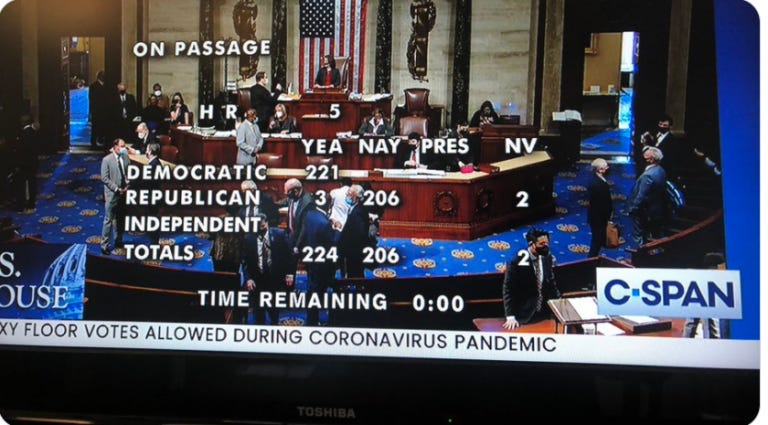

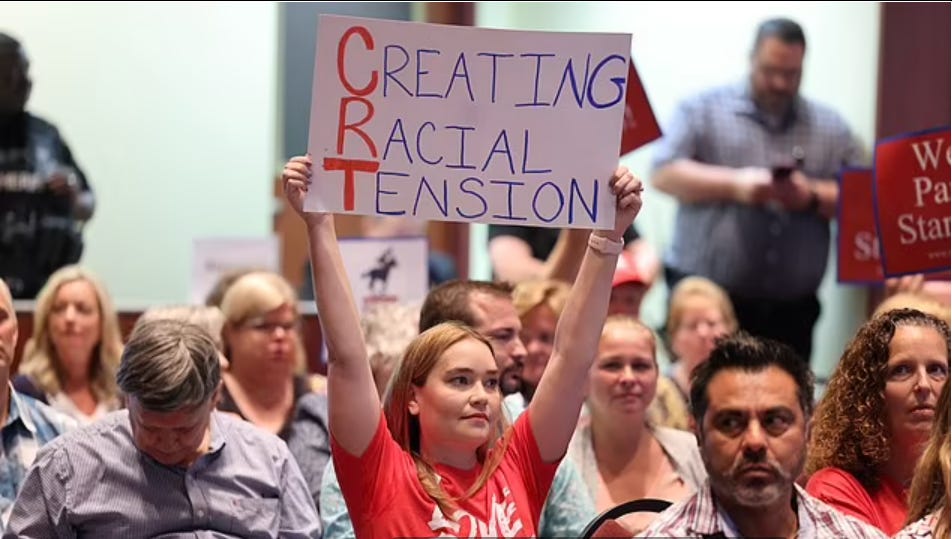
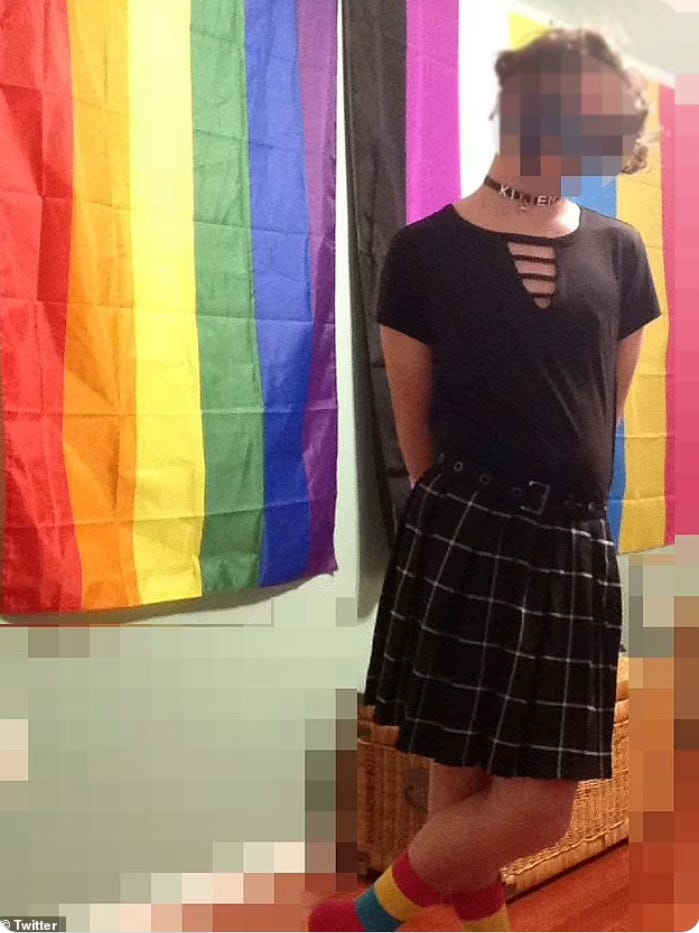

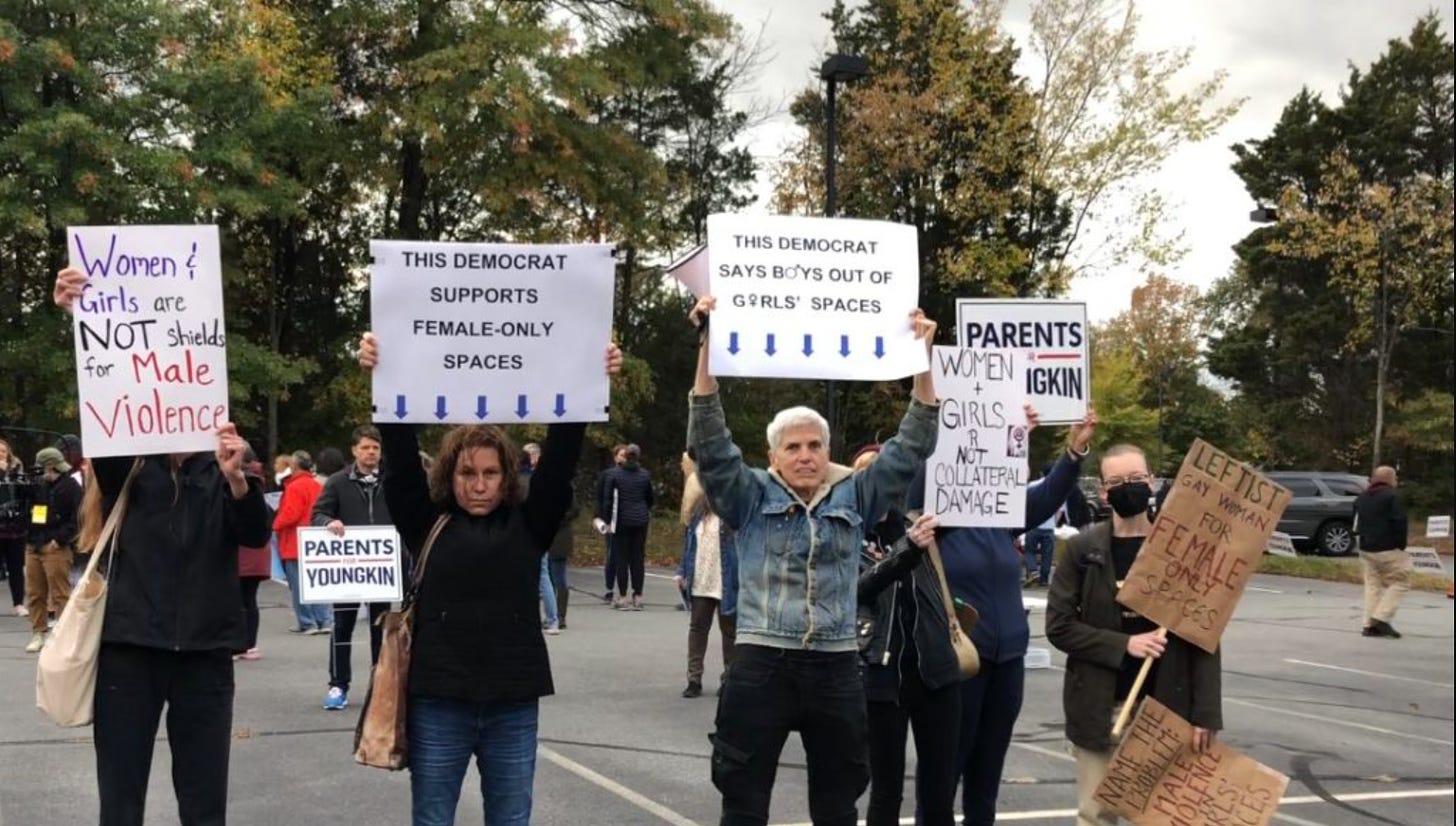
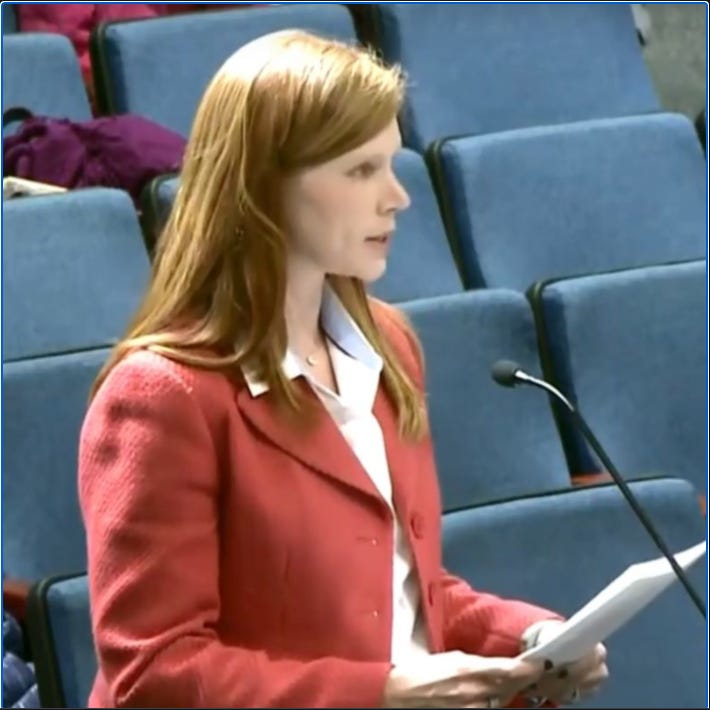

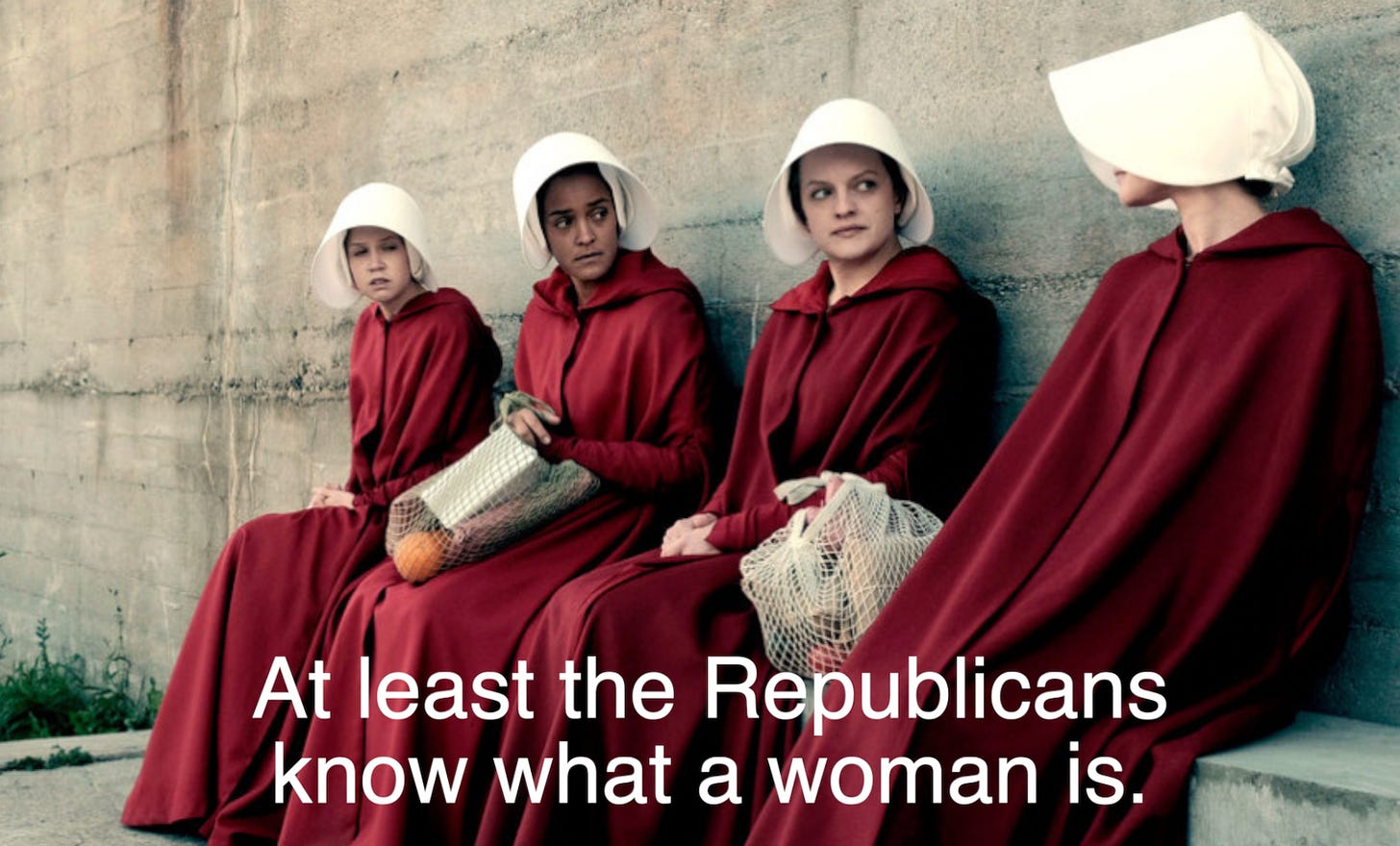
What an amazing article to wake up to this morning. Thank you Katherine.
" [...] women are intelligent and creative; that if enough of us put our heads together, we can figure a way to break free of the notion that we must choose between two forms of oppression, and then work towards true female liberation."
I'm ... not entirely sure I agree with you that there are other options. I've gotten so angry and cynical about this, starting in 2008 when I saw supposed "feminists" making sure to raise their voices when they shit-talked Hillary Clinton whenever cute guys were standing around, and they said and did nothing while Sarah Palin was torn to shreds by left-wing misogyny.
When I was in my 20s and 30s I thought the pegboard could be switched out or changed, and now I no longer think that. I wish I did, because absolutely every single thing you're saying here is correct. I honestly think that the only thing that can really be done is to save individual women one at a time anymore.